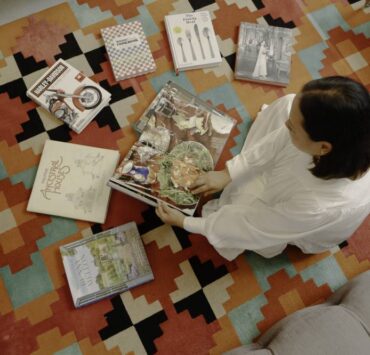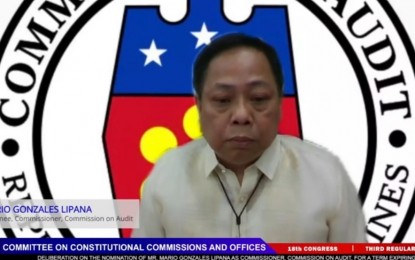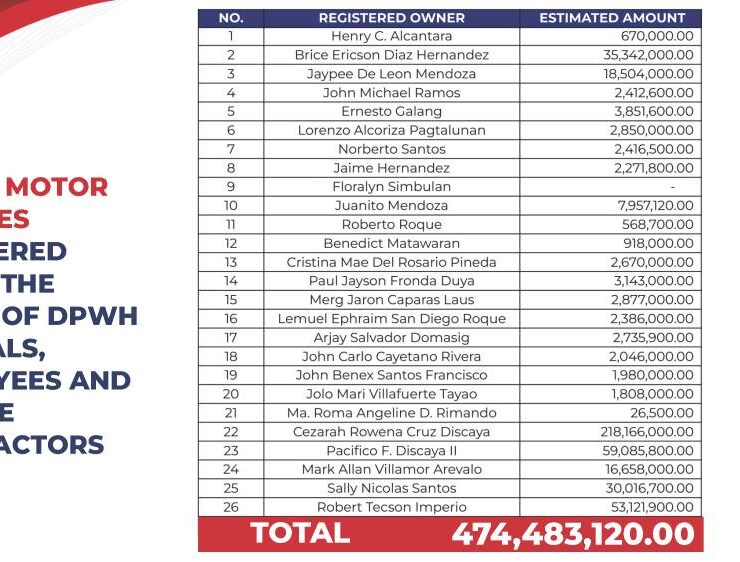When ghost projects become the season’s hottest look

Across the Philippines, citizens are left to deal with not even the bare minimum: roads that disintegrate, buildings that were never built, and flood control systems that crumble under the first heavy rain. Infrastructure, when it appears at all, feels like fast fashion—poorly stitched, easily torn, destined to fail.
Yet while substandard projects define public life, another kind of collection flourishes. Political dynasties and their chosen contractors parade wardrobes brimming with excess, curated not from honest labor but from ghost projects that should have served the people.
Woven into culture
Corruption here has become so ordinary that some say it is woven into our culture, a default fabric of governance. What begins with padded receipts at the lowest posts blossoms into closets bursting with couture at the highest levels.
Every missing kilometer of highway is refashioned into a limited-edition handbag. A school that was never built becomes designer clothes for daily wear. The threads of public works dissolve neatly into the seams of luxury closets.
Political heirs and contractors’ children inherit not legacies of service or craftsmanship, but designer wardrobes stocked by funds meant for classrooms and hospitals. While Filipinos navigate cracked sidewalks, they select from racks of Prada and Chanel as effortlessly as choosing an everyday T-shirt.
For these families, ghost projects are the foundation pieces that never go out of style. A half-built school is their crisp white button-down. A collapsed road is their little black dress. An abandoned floodway becomes their staple trench coat—timeless, dependable, always there to prop up the look. Public failure is their capsule collection: each season, the same formula—cut corners, pocket funds, then restock the wardrobe.
While drainage systems remain clogged and hospitals remain unfinished, the suitcases of the elite bulge with carefully-folded outfits, destined for European holidays and ski resorts.
The audacity of it all
What’s infuriating is the audacity. The closets are flaunted with no shame, as though they were simply updating us on where our money went. National budget allocations transform into tickets: one to Paris Fashion Week, another to Tokyo shopping sprees, another to a yacht off Capri.
Their runway is the red carpet of exclusive villages, where the spotlight shines not on honesty but on imported fabrics stitched together by public betrayal. Ghost projects stock their closets like seasonal drops—exclusive, limited, impossible for ordinary Filipinos to access. Each new haul is tagged, flaunted, and admired, while the only thing delivered to the people is absence: absent roads, absent schools, absent hope.
And here lies the bitter truth: Those closets are funded by taxpayers’ money that should have gone to improve lives. Instead, those who pay are left struggling harder. People are dying in overcrowded hospitals, homes are ruined by floods that never should have happened, and children study in crumbling classrooms while public funds line luxury wardrobes. Every designer outfit is hemmed with the threads of stolen dignity. Every luxury wardrobe is lined with the absence of the infrastructure we were promised.
Stitched into the fabric of life
Corruption in the Philippines is not treated as scandalous anymore; it has been normalized, stitched into the very fabric of public life. It starts small, tucked away like an accessory, and grows into full wardrobes funded by billion-peso projects that never materialize.
How can it ever be stopped if tolerated at the lowest positions? If every padded budget and handshake deal is excused as “part of the culture”?
So the question for us is this: How long will we allow the closets of the few to overflow, while the nation itself has nothing to wear? Until accountability is demanded from top to bottom, what the Philippines will keep tailoring is not progress, but privilege and an endless collection of corruption that never goes out of season.





















